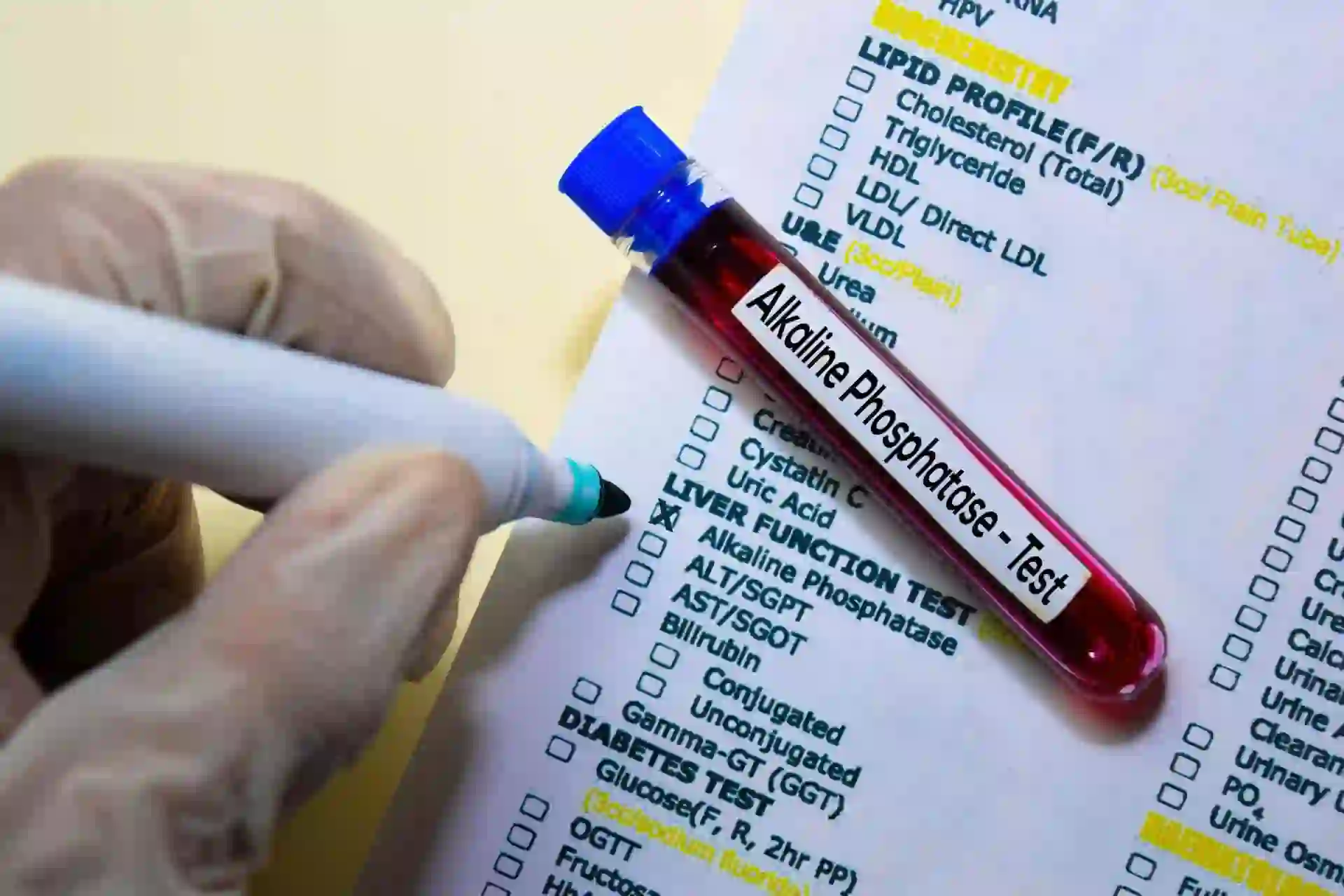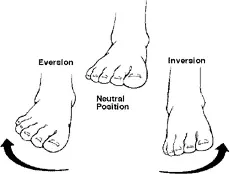What Level of Alkaline Phosphatase is Dangerous?
The level of alkaline phosphatase (ALP) in the blood can vary depending on various factors such as age, sex, and underlying health conditions. Generally, a mildly elevated ALP level may not be a cause for concern and can be due to factors like growth spurts in children or pregnancy. However, significantly elevated levels of ALP can indicate liver or bone disease, among other conditions.
The S Alkaline Phosphatase (ALP) Test helps in the diagnosis of issues related to liver and bone health. You can have a full understanding of your skeletal and hepatic wellness by understanding its significance and procedure. This article will teach you about the preparations that are required and, most significantly, what your ALP test results may suggest.
What is alkaline phosphatase (ALP)?
An essential component of your body’s biochemical operations, alkaline phosphatase (ALP) is an enzyme that helps control cellular activity and metabolic pathways. It is found in many bodily tissues, such as the digestive tract, bones, kidneys, and liver. Phosphate compound-related chemical processes are catalyzed by ALP.
ALP is essential for the movement of chemicals in your bile and has a role in the metabolism of lipids in your liver, which helps with digestion. It is essential for bone mineralization in bone cells, which preserves the stability and strength of your skeletal system.
What is a blood test for alkaline phosphatase (ALP)?
To determine the amount of the alkaline phosphatase enzyme in your blood, an alkaline phosphatase blood test is a crucial diagnostic tool. This test provides important information on the condition of your bile ducts, liver, and other tissues that contain ALP.
The primary mechanism by which the ALP test functions is the enzyme’s ability to degrade phosphate esters. The substrate in the most often used method is p-nitrophenol phosphate. P-nitrophenol, a yellow-colored product, is released when this substrate is broken down by ALP.
It is possible to determine the rate of p-nitrophenol phosphate breakdown using spectrophotometry. The standard unit for measuring enzyme activity, international units per litre (IU/L), is used to report the test findings. This makes it possible to test and compare your alkaline phosphatase activity consistently between labs and techniques.
Depending on where the enzyme is located in the body, ALP can exist in several forms. Age-related variations in normal ALP levels are common; infants and pregnant women typically have greater levels because of placental and bone growth, respectively. ALP blood testing is frequently done in conjunction with regular physical examinations.
Why is a blood test for alkaline phosphatase necessary?
To look into a variety of symptoms that could indicate certain diseases impacting the liver, bones, and other body systems, your doctor may recommend an alkaline phosphatase test:
Your doctor may suggest an ALP test if you have persistent abdominal pain, jaundice (yellowing of the skin or eyes), or unexplained fatigue in relation to liver problems. ALP levels may be elevated by diseases such as cirrhosis, hepatitis, or obstructions in the bile ducts, which may indicate possible stress or injury to the liver.
Your doctor may recommend an ALP test if you have bone-related symptoms like osteoporosis, fractures without major trauma, or bone pain. In these situations, elevated ALP levels may be a sign of increased bone cell activity caused by fractures, bone diseases, or even bone malignancy. Elevated ALP levels can potentially be a symptom of Paget’s disease, a disorder that causes abnormal bone development.
Your doctor may occasionally check your ALP levels when you’re receiving therapy for an illness that affects the liver or bones in order to gauge how well the treatment is working and to assess how well the response to it is.
The placenta’s actions naturally cause ALP levels to rise throughout pregnancy; your doctor may use the ALP test to track this normal elevation. Furthermore, even before symptoms appear, the ALP test can aid in the early detection of possible health problems.
Even though lower-than-normal ALP levels don’t typically cause clear symptoms, they can occasionally be linked to underactive thyroid function, malnutrition, or specific genetic disorders that influence how bones form.
Remember that the ALP test is not a stand-alone diagnostic instrument. In order to make an accurate diagnosis or to keep track of your health, your doctor will evaluate your ALP levels in conjunction with results from other tests and your medical history.
What distinguishes a comprehensive metabolic panel (CMP) or liver panel from an alkaline phosphatase (ALP) test?
The alkaline phosphatase test, which often focuses on liver and bone health, precisely measures the amounts of the ALP enzyme in your blood. On the other hand, a liver panel evaluates the overall function of the liver by measuring several liver enzymes, proteins, and bilirubin.
In addition to testing liver function, a comprehensive metabolic panel (CMP) also measures blood sugar, renal function, and electrolyte levels. Although ALP is a component of these more general panels, it targets the ALP enzyme in particular.
Does a blood test for alkaline phosphatase need me to fast?
For the most part, an alkaline phosphatase blood test does not require fasting. It is a standard procedure for drawing blood and doesn’t call for any special preparation, such as fasting. But in order to get precise readings of your blood sugar and cholesterol, fasting may be advised if your doctor orders a full metabolic panel (CMP), which includes ALP. Always heed the advice of your healthcare practitioner; they will indicate whether fasting is required for any particular testing.
What can I expect from my blood test for alkaline phosphatase (ALP)?
Your arm will be cleaned with an antiseptic by a healthcare professional or phlebotomist when you arrive for your alkaline phosphatase blood test. You could use a tourniquet to find a vein. A tiny amount of blood will be drawn using a needle and placed into a vial. During this procedure, you can experience a brief sting or prick.
Following the extraction of blood, the puncture site will be covered with a bandage or cotton ball, and pressure will be administered to halt any further bleeding. Usually, the entire process takes a few minutes.
You should remain calm and let the medical technician know if you have any worries or discomfort. Results from the laboratory’s analysis of the blood sample are usually ready in a few days. During a follow-up visit, your doctor will interpret the results and go over them with you.
How risky are tests for alkaline phosphatase (ALP)?
In general, an ALP test is safe. The needle site may experience little bleeding or bruises, but these are the only possible risks. It is exceedingly unusual that you will faint or feel dizzy after the blood draw. Make sure the technician knows if you’ve previously experienced negative blood test reactions.
What does a blood test for alkaline phosphatase (ALP) mean?
Alkaline phosphatase (ALP) levels that are high vary depending on the lab’s reference range and the health of the individual. High ALP levels are generally thought to be greater than 140 IU/L in adults. But certain diseases, such liver illness, can cause significantly greater levels. Adults with low ALP levels—which are less common—may have levels as low as 20 IU/L. Low ALP can be caused by hypothyroidism, starvation, or some genetic abnormalities that interfere with bone formation.
What is the alkaline phosphatase (ALP) normal range?
Alkaline phosphatase normal ranges might change depending on your age, gender, and personal health circumstances. The standard reference range for adults is 44–147 units per litre (IU/L) of blood.
Similar to adult males, adult women’s normal reference range for ALP levels typically falls between 20 to 140 units per litre (IU/L) of blood. However, because of the placenta’s natural functions, ALP levels can naturally rise during pregnancy and occasionally surpass the normal range.
Due to continued bone growth and development, ALP levels in children and adolescents are typically higher and fall between 130 and 320 IU/L in the reference range. ALP levels may normally decline with age. It should be noted, nevertheless, that the alkaline phosphatase normal range can vary according to the particular methodology used by the laboratory performing the test.
If my alkaline phosphatase (ALP) level is high, what does it mean?
Elevated levels of alkaline phosphatase (ALP) can indicate a number of underlying medical conditions:
Hepatitis: Hepatitis is an inflammation of the liver caused by viruses, poisons, or autoimmune reactions. When hepatitis is present, elevated ALP is a sign of impaired liver function and inflammation.
Cirrhosis: Cirrhosis is the advanced stage of liver fibrosis caused by persistent injury. ALP levels may increase as the liver fails to function properly.
ALP levels rise when the liver tries to eliminate a backlog of bile due to bile duct obstruction, which can be caused by diseases such as gallstones, tumors, or strictures.
Alcoholic liver disease: Prolonged, excessive alcohol use can harm the liver, causing inflammation and stress on the liver that raises ALP levels.
Paget’s Disease: This bone disease causes excessively active bone cells by interfering with the bone’s natural recycling process. These cells are more active, which raises ALP levels.
Osteoporosis: Elevated levels of ALP may occur in severe cases of osteoporosis due to accelerated bone turnover, however, this condition is not commonly diagnosed using ALP.
Bone Cancer: Because of the increased cellular activity in the affected bone, some kinds of bone cancer can raise ALP levels.
Gallbladder Diseases: Disorders that affect the gallbladder, like gallstones or cholecystitis, can block the bile ducts, which lowers bile flow and raises ALP levels.
Pancreatitis: The inflammation of the pancreas, which is frequently caused by gallstones or binge drinking, can raise ALP levels because it obstructs the bile duct.
Hyperparathyroidism: As a result of bone remodeling, hyperactive parathyroid glands can raise ALP levels.
Osteomalacia and rickets: These disorders cause the bones to weaken and soften, and because of aberrant bone metabolism, they can raise ALP levels.
Inflammatory Bowel Diseases: Illnesses that cause inflammation in the bile ducts and liver, such as Crohn’s disease or ulcerative colitis, can raise ALP levels.
Thyroid Disorders: Although it happens less commonly, several thyroid disorders, most notably hyperthyroidism, can result in high ALP levels.
Medication: High ALP is a side effect of various drugs, such as antibiotics, anticonvulsants, and painkillers.
It’s critical that you realize that increased ALP levels are merely an indication and not a conclusive diagnosis. There’s no consensus on what constitutes dangerously high amounts of alkaline phosphatase.
These levels will be part of a thorough evaluation that your doctor will undertake, taking into account additional diagnostic procedures to determine the precise cause. For a more precise diagnosis, more testing—such as imaging investigations, bone scans, or liver function tests—might be required in some circumstances.
When liver disease is present, treatment for high alkaline phosphatase levels may include antiviral drugs, dietary modifications, or, in extreme circumstances, liver transplantation. Treatment for bone illnesses can involve medication, physical therapy, or surgery, depending on the particular issue you have.
If my alkaline phosphatase (ALP) level is low, what does it mean?
A low level of alkaline phosphatase may indicate malnourishment, hypothyroidism, zinc and magnesium insufficiency, or uncommon genetic disorders that impact bone formation such as Wilson disease and hypophosphatasia. Low ALP values are less typical.
What does a high or low alkaline phosphatase (ALP) test result mean?
Depending on a number of variables, you may want to be concerned about high or low ALP test results. As was previously said, pregnant women, teens going through puberty, and children all naturally have high alkaline phosphatase levels. Your ALP levels may rise briefly during the healing process even after bone damage.
High ALP levels in adults are not a clear indication of any related condition, save from these few exceptions. Although low ALP levels are not usually linked to serious, immediate health problems, they can indicate possible dietary deficiencies or hereditary diseases. It’s crucial in neither situation to draw immediate conclusions or become fixated on the outcome.
In order to identify the underlying cause and the best course of action, your doctor will take into account both your general health and your symptoms.
Summary
An ALP test is a useful tool for determining how your body uses metabolism for digesting and bone repair. Whether high or low, your ALP test results shouldn’t be taken too seriously right away. However, they may be related to a number of hepatic and skeletal conditions, insufficient dietary intake, or genetic factors.
Seeking additional examination from a physician is necessary to determine the precise cause and direct the right course of treatment. Do you want to know what your ALP levels are? We at Metropolis Healthcare are dedicated to providing you with an accurate diagnosis. Metropolis Labs, which is trusted by the top medical professionals and hospitals in India, has extensive, cutting-edge blood testing facilities run by skilled phlebotomists.
If you’re concerned about your ALP levels or any other blood test results, it’s essential to consult with a healthcare professional for proper evaluation and guidance tailored to your specific situation.







